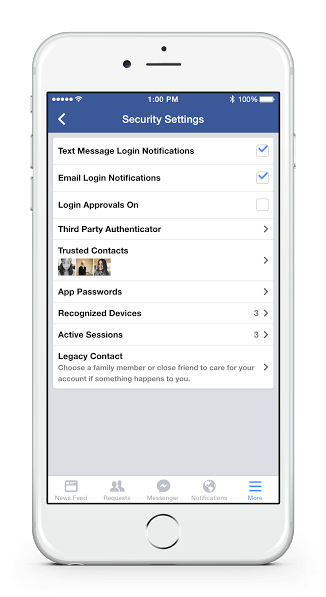The first question you ask when you create a Facebook account should be, “Do I want people to see this?” All of the information, photos, and favorites you’re posting are at least partially public, and the network’s privacy settings are anything but infallible. Making sure you’re OK with what you’re uploading being seen by anyone is an important step.
The next question after that should be, “Who will control all of this when I die?”
After failing to address this issue for a long time, Facebook is finally giving in and adding a legacy feature that will let you dictate who inherits your account.
It sounds cold and calculated, but it’s a necessary consideration. We’ve all seen deceased friends and family members’ accounts either mismanaged or left fallow. There’s the mom who posts from her deceased son’s account, or the moment when Facebook accidentally prompts you to tag your dead friend in a photo. Facebook has a feature that allows you to “memorialize” a dead person’s account, but this has no effect on the user-facing aspect of the profile and is really just a way to lock down an account.
Now, you will be able to cosign ownership of your account over to someone else entirely, letting them manage the account as they see fit (or as you see fit with instructions for them). Facebook describes this as an enhancement to its memorialize feature. This gives the person, your “legacy contact,” the ability to:
- Write a post to display at the top of the memorialized Timeline (for example, to announce a memorial service or share a special message)
- Respond to new friend requests from family members and friends who were not yet connected on Facebook
- Update the profile picture and cover photo
Alternatively, you can choose to have the account wiped instead (your legacy contact can’t decide to do this on their own). The notation “Remembering” will now appear above the names of memorialized pages as well, so that it’s clear a user has passed away.
“Until now, when someone passed away, we offered a basic memorialized account which was viewable, but could not be managed by anyone,” Facebook’s feature announcement reads. “By talking to people who have experienced loss, we realized there is more we can do to support those who are grieving and those who want a say in what happens to their account after death.”
The feature is live and ready to roll: Go to Settings, then Security, then scroll to the bottom and find Legacy Contact. You can choose an existing Facebook friend here. You can then choose whether to give them the ability to download your archive or delete your account. You only get one choice of legacy contact; there’s no backup in case that person shirks their responsibility, so choose wisely.
Photo via Håkan Dahlström/Flickr (CC BY 2.0)




